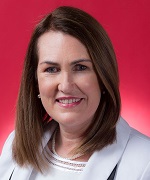A Parliamentary Joint Committee inquiry has challenged life insurers and the FSC for their lack of action in dealing with concerns raised at a previous PJC life insurance inquiry, claiming the inaction was further damaging the credibility of the life insurance sector.

The claims were made by Senator Deborah O’Neill at a recent hearing of the PJC Inquiry into Options for Greater Involvement by Private Sector Life Insurers in Worker Rehabilitation, at which FSC Director Policy and Global Markets, Allan Hansall and FSC Policy Consultant, Life Insurance, Nick Kirwan addressed the committee.
The FSC has promoted the benefits of allowing life insurers to be involved in the funding of medical treatments and rehabilitation costs, claiming it would benefit more than 10,000 people each year and reduce the time people are away from work (see: Life Insurer Funded Treatments Would Benefit Thousands).
Hansall and Kirwan were attending the hearing in support of the FSC’s position leading O’Neill to ask if it would be better received if the Council and its life insurance members had made greater efforts in addressing the issues raised in the Committee’s previous inquiry into life insurance.
In its final report released in March, the previous PJC inquiry recommended that within six months of its conclusion the FSC was to have implemented agreed protocols and standards for request of relevant medical information but not complete medical files, as well as uniform authorisation forms for access to medical information, and appropriate storage of medical information.
“…there just isn’t sufficient capacity for people to think that the life insurance industry is going to act in a way that is ethical…”
Referencing these recommendations, O’Neill asked the FSC representatives if the presentation of the funding proposal to the PJC was premature “…given the recommendations from the insurance inquiry really have not been fully aired and implemented yet by the sector?”
O’Neill also asked if the FSC considered its proposal “…would have had more credibility if the changes that are required by the recommendations of the inquiry… had already been implemented and trust had been built with the community at large?”.
“I’m saying that, with the current trust deficit, the solution that you’re offering is one that people aren’t buying, because there just isn’t sufficient capacity for people to think that the life insurance industry is going to act in a way that is ethical with regard to vulnerable people right now,” O’Neill added.
Responding to the questions, Kirwan said the FSC had met with the Royal Australian College of General Practitioners and “…have exchanged views about what a good consent would look like” and was due to meet with them again over further required changes.
“I genuinely believe that we’re not a million miles apart—on that issue of consent and having reports rather than clinical notes, for example,” Kirwan said.
“We’re also acutely aware that there’s a customer waiting at the end of that process. So, we’re adding in to that discussion something about time frames for reports…So, on all of that I think we’re making some good progress,” he added.



